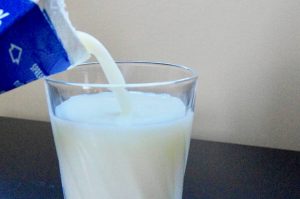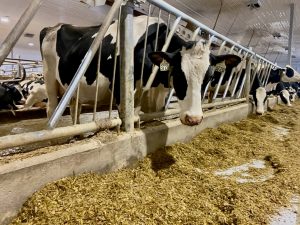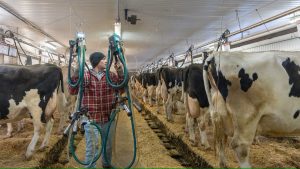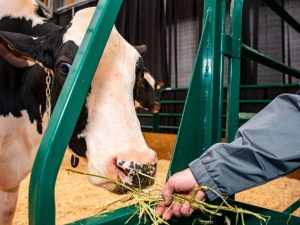
The Canadian Dairy Commission approved a rare second milk price increase this year on June 21. The Crown Corporation, which oversees Canada’s dairy supply management system, said farm gate milk prices will go up about two cents per litre, or 2.5 per cent, on Sept. 1.
The increase comes after milk prices rose six cents per litre, or roughly 8.4 per cent, on Feb. 1.
The decision followed a request by Dairy Farmers of Canada in May for a mid-year milk price hike due to inflation. The industry lobby group said farmers are facing never-before-seen price increases on goods and services they need to produce milk.
“When it comes to food inflation, hot sections right now are dairy and the centre of the store – dry goods, That’s where we’re seeing a lot of movement with prices,” Sylvain Charlebois, Dalhousie University professor of food distribution and policy, says.
“I feel the pain, I’m a consumer on the other end – I buy groceries,” Ottawa Dairy Farmer Peter Ruiter told CTV News Ottawa.
“I know everything else is going up, but ironically I buy groceries for my cows. If you think they’re bad in the store just wait until you see my feed bills, my fertilizer bills and my diesel bills – they’re up way more than what you see in the store.”
Ruiter says it costs $10.25 a day to feed each one of his 50 cows. In the past two years, that’s up nearly $2.60. And that cost just covers the feed.
Ruiter says while September’s prices increases won’t fully cover rising costs, “I know I can use that two and a half per cent, it’s going to affect my bottom line by actually keeping me positive.”
He looks to efficiencies too — like going high tech, using a robot to mix feed and deliver it to the cows.
“To feed all my cows in a day now is 30 minutes.”
The cows are milked using an automated machine too.
“You don’t want farmers going out of business; I don’t think consumers want that. I think consumers want the milk produced in Canada, so they can have the quality that they love and they’ll drink a Canadian product.”
With files from The Canadian Press

























